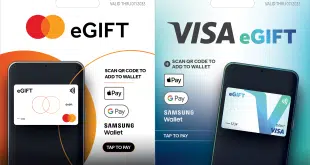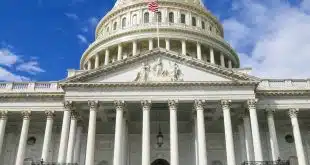n
Visa Inc.’s interchange schedule set to take effect Oct. 1, the day new federal debit card interchange price controls also become effective, cuts a few rates for non-regulated debit issuers but clearly encourages issuers to pump out more prepaid cards. Visa also is eliminating volume-based tiers for supermarkets and retailers on its signature debit cards and Interlink PIN-based debit cards.
n
n
The rates are listed in an Aug. 19 Visa bulletin to merchant acquirers and issuers obtained by Digital Transactions News. Visa and MasterCard Inc. typically update their interchange schedules twice a year, in the spring and fall, with major changes usually coming in the spring. But 2011 is no typical year because first-ever U.S. debit interchange price controls are about to go into effect as a result of the Federal Reserve Board’s interchange and network-affiliation rules implementing the Durbin Amendment in 2010’s Dodd Frank Act.
n
n
The Fed on June 29 set basic interchange at 21 cents plus 0.05% of the sale for both signature and PIN debit for issuers with more than $10 billion in assets. General-purpose reloadable prepaid cards, however, are exempt from price controls no matter the issuer’s size, provided the cards clear a number of other hurdles set by the Fed. That means big banks that no longer see conventional debit as attractive might find greener pastures in prepaid cards.
n
n
Visa declined to talk about the upcoming changes. The new schedule adjusts rates in 19 interchange categories for Visa-branded prepaid cards, with most of them increasing. The basic retail rate, for example, will go from 0.95% plus 20 cents to 1.15% plus 15 cents. On a typical $38 debit card sale, that rate will generate 5% more in interchange: 59 cents versus 56 cents under current rates.
n
n
Visa’s prepaid card supermarket rate also is increasing from 0.95% plus 20 cents to 1.15% plus 15 cents, but the 35-cent transaction cap remains in place. That cap will result in no increase on a $38 sale, however.
n
n
The biggest increase in the Visa-branded prepaid categories is for automated fuel dispenser transactions, where the rate will go from 0.75% plus 17 cents, with a 95-cent cap, to 1.15% plus 15 cents, with the cap remaining. On a $50 fill-up, the merchant will pay 73 cents versus 55 cents currently, an increase of 33%.
n
n
Another rate applicable to service-station prepaid transactions will boost interchange by 29% on a $38 sale. A number of other rates in the e-commerce and travel-and-entertainment categories are going up anywhere from the teens to 30%. But rates for utilities and tax payments, two merchant sectors the card networks are trying hard to develop, will fall for both Visa-branded regular debit cards and prepaid cards.
n
n
“[Visa] clearly is upping prepaid across the board and giving lip service to some categories,” says consultant Steve Mott, chief executive of Stamford, Conn.-based BetterBuyDesign.
n
n
With Interlink, Visa is reducing pricing for supermarkets, the most important merchant category for debit and prepaid cards. The regular Interlink supermarket rate will go from 0.95% plus 20 cents with a 35-cent cap to 0.8% and 15 cents and a 33-cent cap. That will result in a 6% drop in interchange on a $38 sale. Interlink’s prepaid card supermarket rate will change from 0.95% plus 20 cents to 1.15% plus 15 cents, with the new rate retaining a 35-cent cap, meaning no change in interchange on a $38 sale. Regular Interlink fuel transactions will generate 1% more in interchange on a $50 sale, but the expense will rise 33% with an Interlink prepaid card.
n
n
Interlink is under pressure because the Durbin Amendment will ban so-called exclusive network affiliations in which a debit card offers only networks owned by the same company, such as Visa for signature debit and Interlink for PIN debit. Observers expect Interlink, the largest point-of-sale PIN-debit brand, to lose business as issuers shop for unaffiliated networks.
n
n
Meanwhile, Visa is raising interchange for small transactions. The Visa-branded signature and prepaid small-ticket rates will go from 1.55% of the sale plus 4 cents to 1.6% plus 5 cents, which means a 15% increase on a $2 sale and a 9% increase on the $8 sale typical in fast-food restaurants.
n
n
While Visa is eliminating the volume-based thresholds for signature and Interlink supermarket transactions with the Oct. 1 schedule, the network will support existing merchants qualifying for the rates until April 2012.





